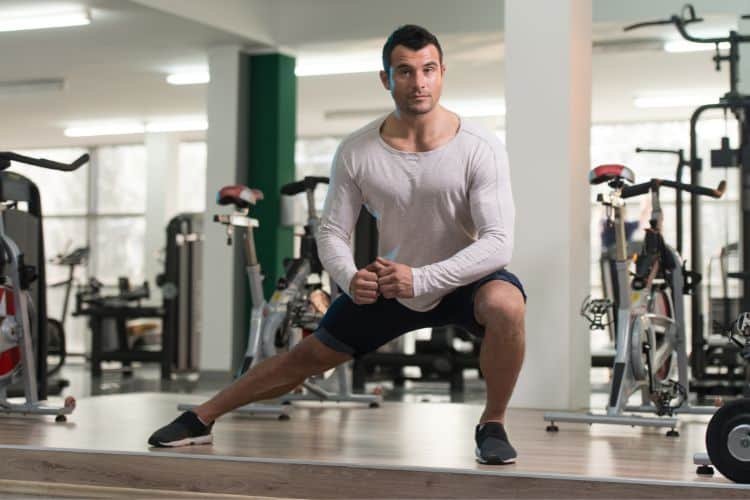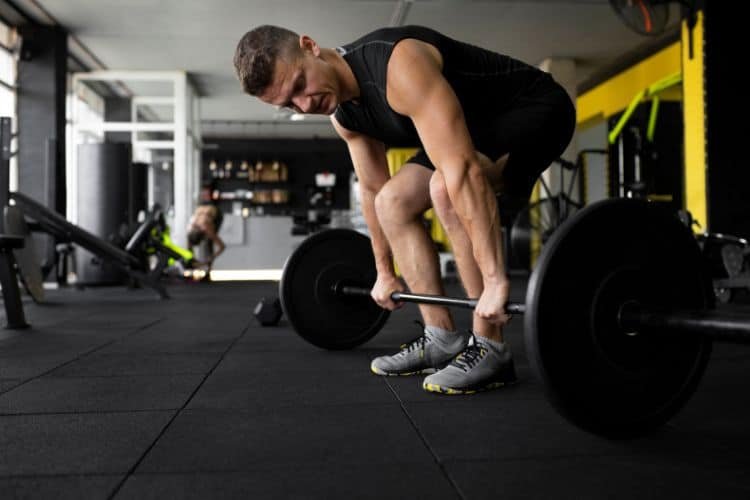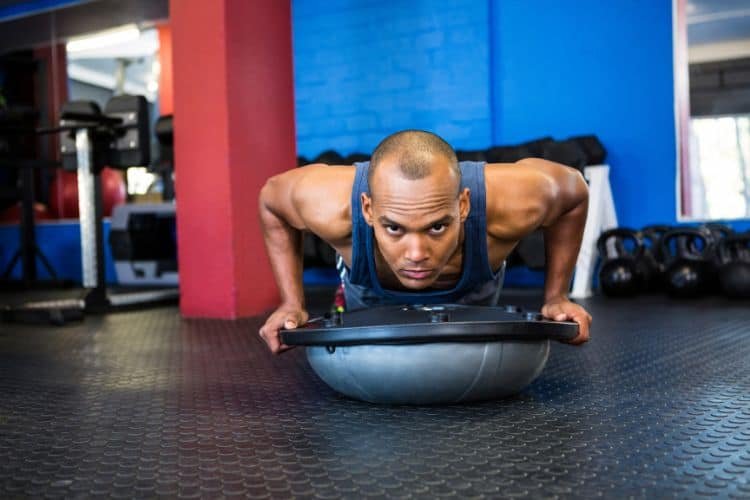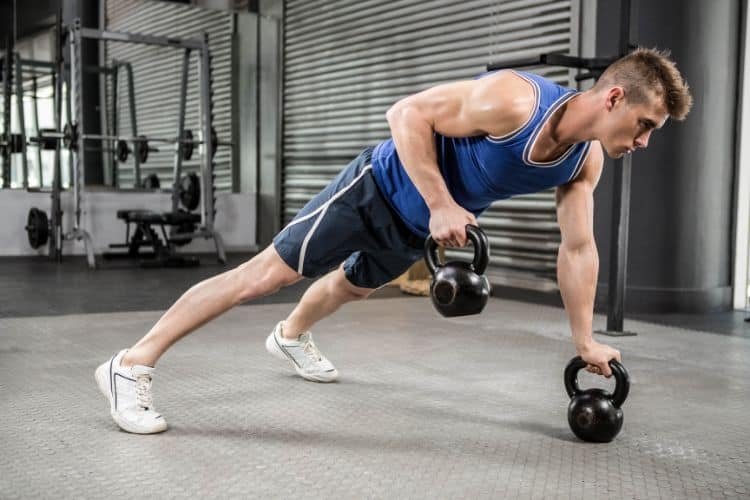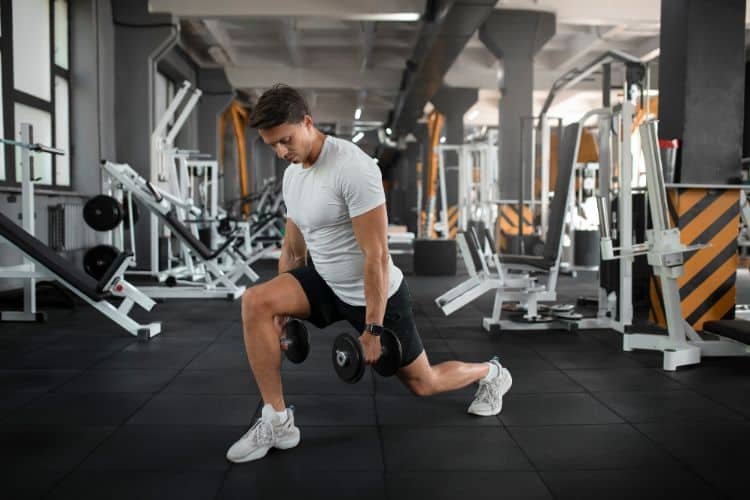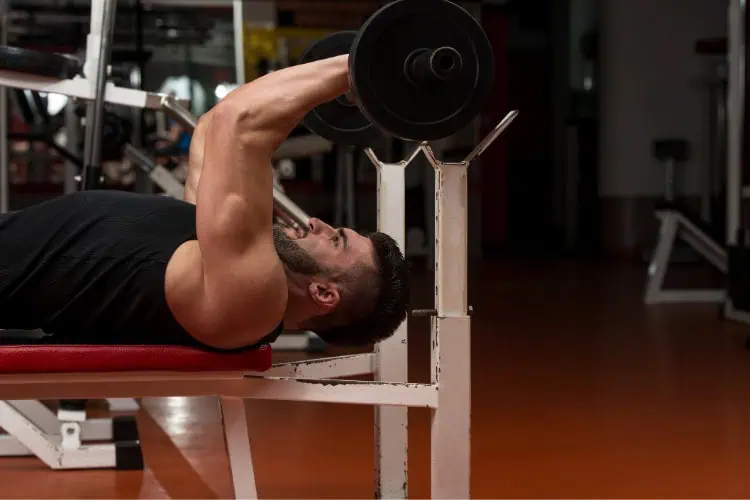
The barbell pullover is a versatile and extremely efficient train that usually flies underneath the radar. Known for its potential to work a number of muscle teams concurrently, it’s a staple motion in lots of strength training routines. Though it’s typically categorized as a chest train, the barbell pullover additionally considerably targets the lats, shoulders, and triceps, making it a great addition to each higher physique and full-body exercises.
In this weblog post, we’ll discover every part you need to know in regards to the barbell pullover, from its advantages and correct kind to variations and how to include it into your exercise routine.
What is the Barbell Pullover Exercise
The barbell pullover is an old-school weightlifting exercise that was popularized within the mid-Twentieth century. Traditionally, it was used to boost higher physique development, particularly the chest and back. Performed with a barbell, this train entails mendacity on a bench and pulling the load from above your head to your chest whereas conserving your arms comparatively straight.
Though it may be a bit tough to grasp, the rewards are vital. When accomplished appropriately, the barbell pullover promotes higher physique flexibility, strengthens the chest and back, and helps in developing higher posture. Let’s break down the important thing points of the train and why it needs to be a staple in your coaching routine.
Benefits of the Barbell Pullover Exercise
1. Upper Body Strength Development
The major benefit of the barbell pullover is its potential to develop upper body strength. While many people affiliate it primarily with chest development, it really works the lats and triceps simply as a lot, offering a more holistic upper-body exercise. By participating the muscle groups of the back, chest, and shoulders in unison, the train enhances general power and stability.
2. Improved Posture
The barbell pullover helps improve your posture by strengthening the lats and the muscle groups of the higher back, which play a key function in sustaining a straight, upright posture. As these muscle groups develop, they help counterbalance the ahead pull of the chest muscle groups, serving to you stand taller and more confidently.
3. Chest Expansion Barbell Pullover Exercise
Old-school bodybuilders believed that the barbell pullover might help broaden the ribcage, which they thought contributed to a broader chest look. While this principle has been debated through the years, there’s no doubt that the train is great for building higher physique measurement and power. The stretch on the prime of the motion can certainly result in enhanced flexibility and a fuller-looking chest.
4. Enhanced Flexibility
The barbell pullover affords a improbable stretch in your lats, chest, and shoulders. This stretching helps improve upper-body flexibility, which might improve efficiency in different workout routines just like the bench press, pull-ups, and overhead lifts. This makes the train invaluable for each power coaching and functional fitness fans.
5. Functional Movement
Given that the barbell pullover engages a number of muscle teams, it enhances coordination and practical motion. Whether you’re an athlete or somebody seeking to construct power for on a regular basis actions, the pullover can improve your potential to generate pressure in pushing and pulling actions.
Muscles Worked by the Barbell Pullover Exercise
1. Chest (Pectoralis Major)
Though not as isolating as workout routines just like the bench press or chest fly, the barbell pullover nonetheless targets the chest successfully, particularly within the stretched place on the prime of the motion. It helps construct each the decrease and higher components of the pectoral muscle groups, contributing to a more balanced chest development.
2. Lats (Latissimus Dorsi)
The lats are closely concerned within the pulling movement of the barbell pullover. By stretching and contracting during the motion, the lats are engaged to a vital degree, which helps with back development. This makes the train extremely versatile, as it may be utilized in each chest and back workouts.
3. Shoulders (Deltoids) Barbell Pullover Exercise
The shoulders, significantly the anterior (entrance) deltoids, play a stabilizing function during the pullover. The deltoids help in controlling the motion because the barbell travels from above your head to the middle of your chest.
4. Triceps (Triceps Brachii)
Although the triceps are usually not the first movers, they do help within the extension of the arms during the train. This engagement helps develop stronger, more toned arms over time.
5. Core
While not the first goal, the core muscle groups, particularly the abs and obliques, help stabilize your physique all through the motion. This oblique engagement is essential for sustaining control and stopping damage during the train.
How to Perform the Barbell Pullover Exercise
Step-by-Step Guide
1. Set Up the Bench: Start by mendacity flat on a bench, together with your toes firmly planted on the ground for stability. Position your self in order that your head is close to the tip of the bench.
2. Grip the Barbell: Using an overhand grip, maintain the barbell together with your fingers barely wider than shoulder-width aside. Your arms needs to be prolonged above your chest.
3. Lower the Barbell: In a managed movement, decrease the barbell backward and over your head. Keep your arms barely bent all through the motion to keep away from placing extreme pressure in your elbows. Lower the barbell till you are feeling a stretch in your lats and chest, however keep away from reducing it up to now that it causes discomfort or compromises your kind.
4. Pull the Barbell Back: Using your chest and lats, pull the barbell back to the beginning place above your chest. Be sure to maintain the movement clean and managed, and interact your core to stabilize your physique.
5. Repeat: Perform the specified quantity of repetitions, sometimes 8-12 reps for power coaching or 12-15 reps for endurance.
Common Mistakes to Avoid With Barbell Pullover Exercise
1. Hyperextending the Elbows: One of the most typical errors during the barbell pullover is locking the elbows out fully. This places pointless pressure on the joints and might result in damage over time. Keep your elbows barely bent to guard them.
2. Going Too Heavy: It’s tempting to load up the bar with as a lot weight as attainable, however the barbell pullover requires control and precision. Using an excessive amount of weight can compromise your kind, cut back the effectiveness of the train, and increase the risk of damage.
3. Not Engaging the Core: Failing to have interaction the core can result in extreme arching of the decrease back, which will increase the risk of damage. Keep your core tight all through the motion to make sure correct alignment.
4. Using Momentum: Some lifters use momentum to swing the barbell back and forth, relatively than controlling the motion. This reduces the engagement of the focused muscle groups and diminishes the effectiveness of the train.
Variations of the Barbell Pullover Exercise
While the normal barbell pullover is very efficient, there are a few variations you’ll be able to attempt to goal completely different muscle groups or make the train more accessible to novices.
1. Dumbbell Pullover
The dumbbell pullover is a great different to the barbell model. Using a single dumbbell permits for larger control and vary of movement, particularly for novices. This variation may help right muscle imbalances, as either side of the physique works independently.
2. Decline Bench Pullover
For an added problem, strive performing the pullover on a decline bench. This variation will increase the vary of movement and places more emphasis on the decrease half of the chest. However, be cautious together with your weight choice and kind, because the decline angle makes the motion more difficult.
3. Kettlebell Pullover
Using a kettlebell can change the middle of gravity, making the train really feel completely different from utilizing a barbell or dumbbell. The kettlebell pullover engages the stabilizer muscle groups more intensely, particularly within the shoulders and core.
4. Cable Pullover
A cable machine can present fixed rigidity all through the whole vary of movement, which some people discover useful for muscle activation. The cable pullover is a great technique to isolate the lats and chest, and it’s simpler to control the resistance.
How to Incorporate Barbell Pullover Exercise into Your Workout
For Chest Day
If you wish to emphasize chest development, incorporate the barbell pullover in the direction of the tip of your chest exercise. After finishing your heavier presses, such because the bench press or incline press, use the pullover as a ending motion to stretch and fatigue the pectorals.
Sample Routine:
- Bench Press: 4 units of 6-8 reps
- Incline Dumbbell Press: 3 units of 8-10 reps
- Barbell Pullover: 3 units of 12-15 reps
For Back Day
To goal your lats, carry out the barbell pullover within the center of your back exercise, after your major pulling actions like pull-ups or rows. The pullover will help stretch and strengthen the lats whereas additionally offering some chest activation.
Sample Routine:
- Pull-ups: 4 units of 6-8 reps
- Barbell Row: 3 units of 8-10 reps
- Barbell Pullover: 3 units of 10-12 reps
As Part of a Full-Body Workout Barbell Pullover Exercise
If you’re following a full-body workout routine, the barbell pullover can be utilized as a secondary motion to focus on each the chest and back concurrently. It’s a great selection if you happen to’re short on time and wish to hit a number of muscle teams in a single train.
Sample Routine:
- Squats: 4 units of 6-8 reps
- Overhead Press: 3 units of 8-10 reps
- Barbell
Pullover: 3 units of 12-15 reps
The barbell pullover is a versatile and extremely efficient train that gives quite a few advantages for higher physique power, flexibility, and posture. By focusing on the chest, lats, shoulders, and triceps, it may be included into varied exercise routines, whether or not you’re specializing in chest, back, or full-body development. Remember to prioritize correct kind, use a manageable weight, and interact your core all through the motion. Whether you’re a newbie or an superior lifter, the barbell pullover deserves a place in your exercise routine.
